AS I STEPPED into the Food Bank in Missoula, Montana, I was struck by the reality of food insecurity in the United States. Accompanied by the YSEALI team, I was here to learn more about the workings of a private, publicly governed non-profit organisation that has been serving the community for over 40 years.
(Feature Photo: Weeraya Vichayaprasertkul)
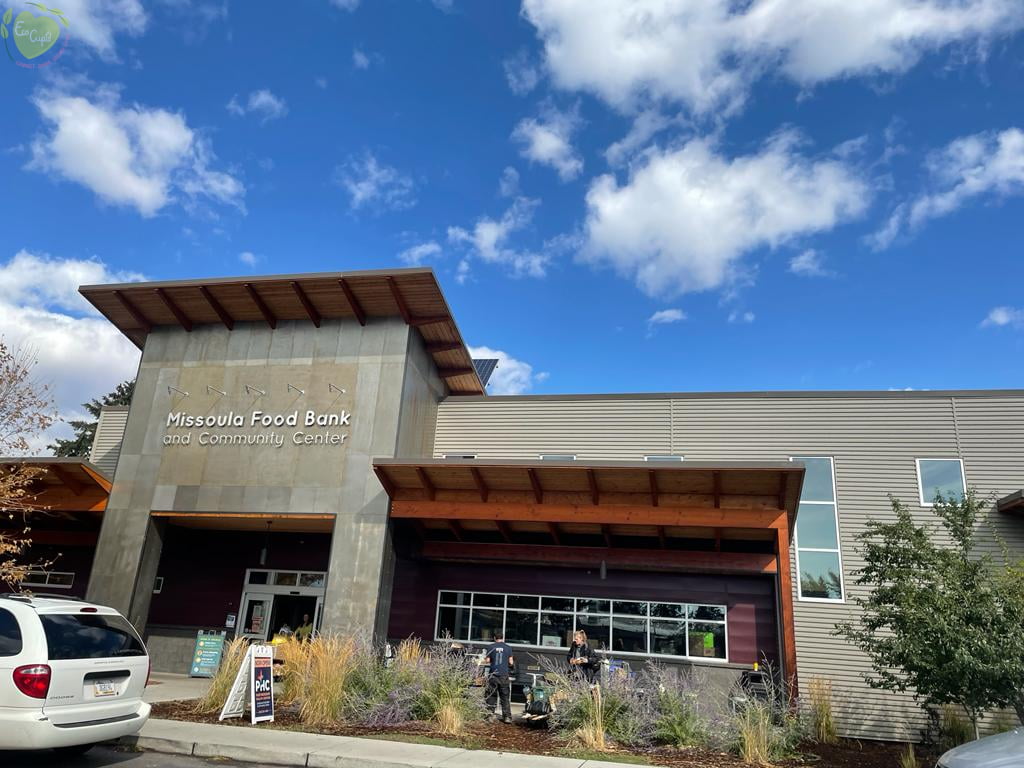
Missoula Food Bank and Community Center. (Weeraya Vichayaprasertkul)
For a long time in the US media, food banks have often been portrayed in a negative light. People shy away from seeking assistance in these facilities in fears of being labelled helpless and pitiful. But as I saw for myself, this was far from the truth. The Food Bank in Missoula was a bustling hub of activity, with people of all ages and backgrounds coming to receive food supplies.
The Missoula Food Bank is actively involved in a community-run grocery rescue program. The Food Bank receives bulk supplies from the Federal Government, and also receives close-to-date and surplus food items from grocery stores. These items are then sorted and repacked for distribution. The Food Bank has so much food coming through its doors it needs 20 volunteers on-duty at any single time.
The food bank also has test labs that conduct food waste audits for all its food stocks to ensure that the surplus food donated is suitable for consumption.
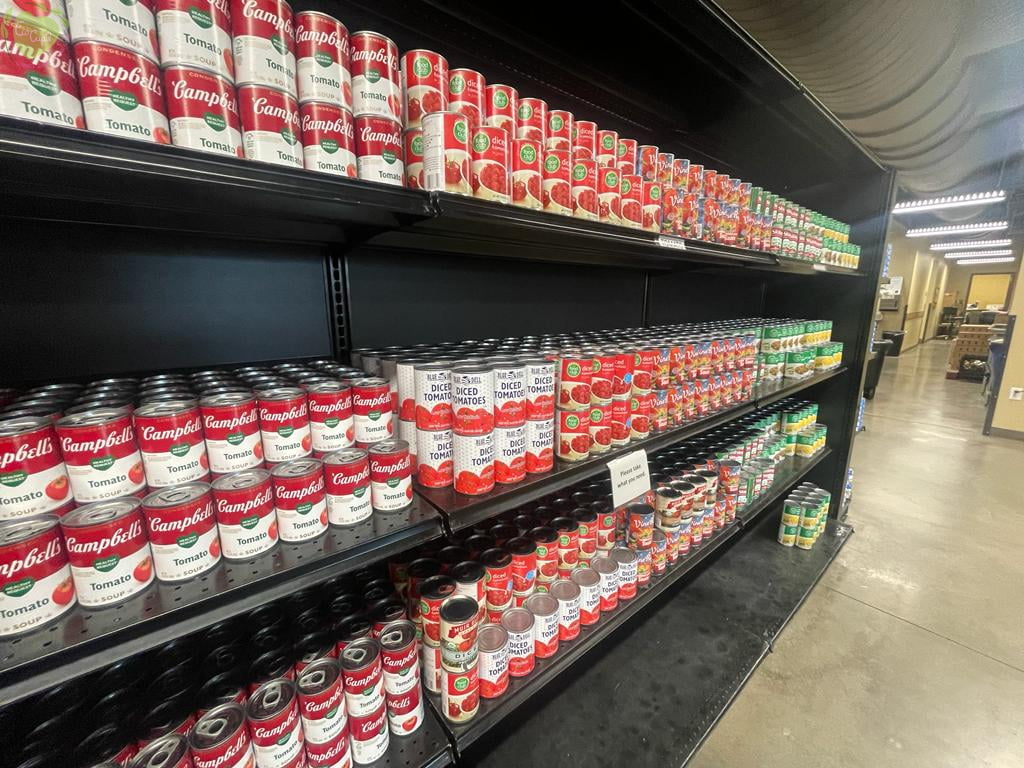
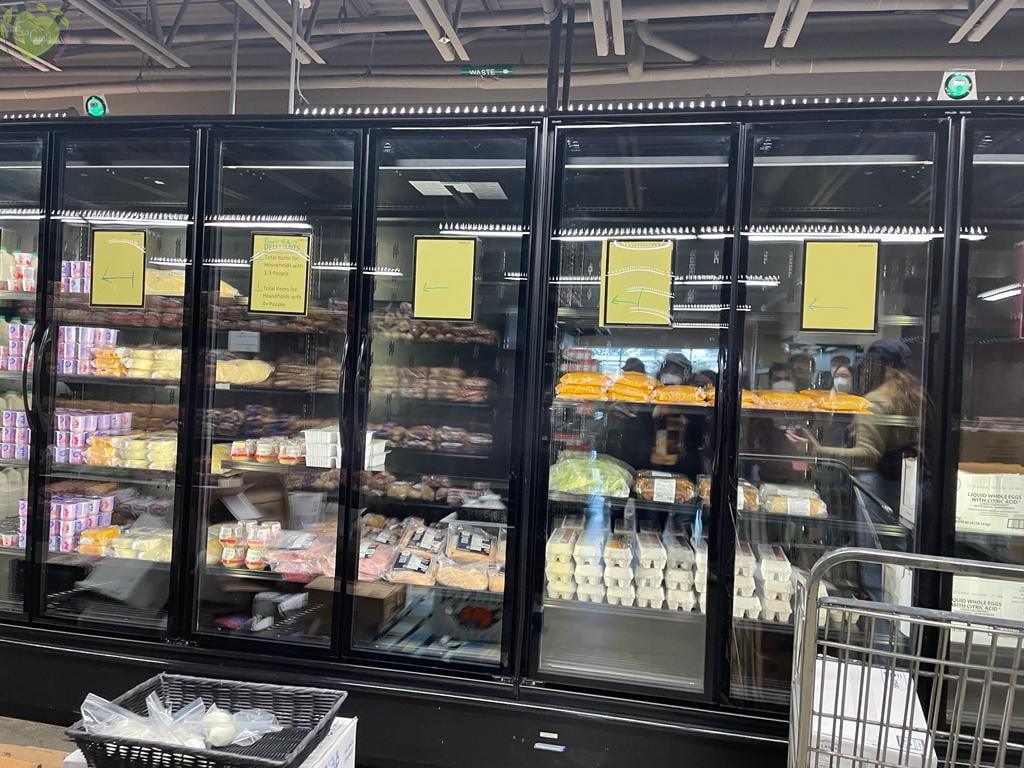
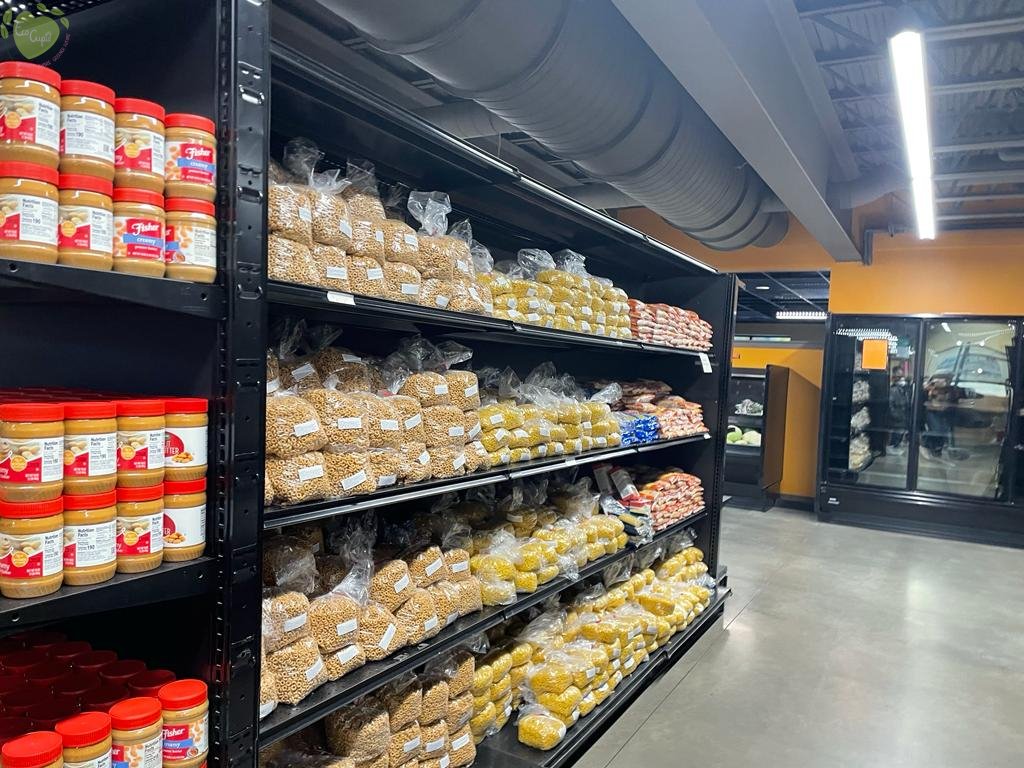
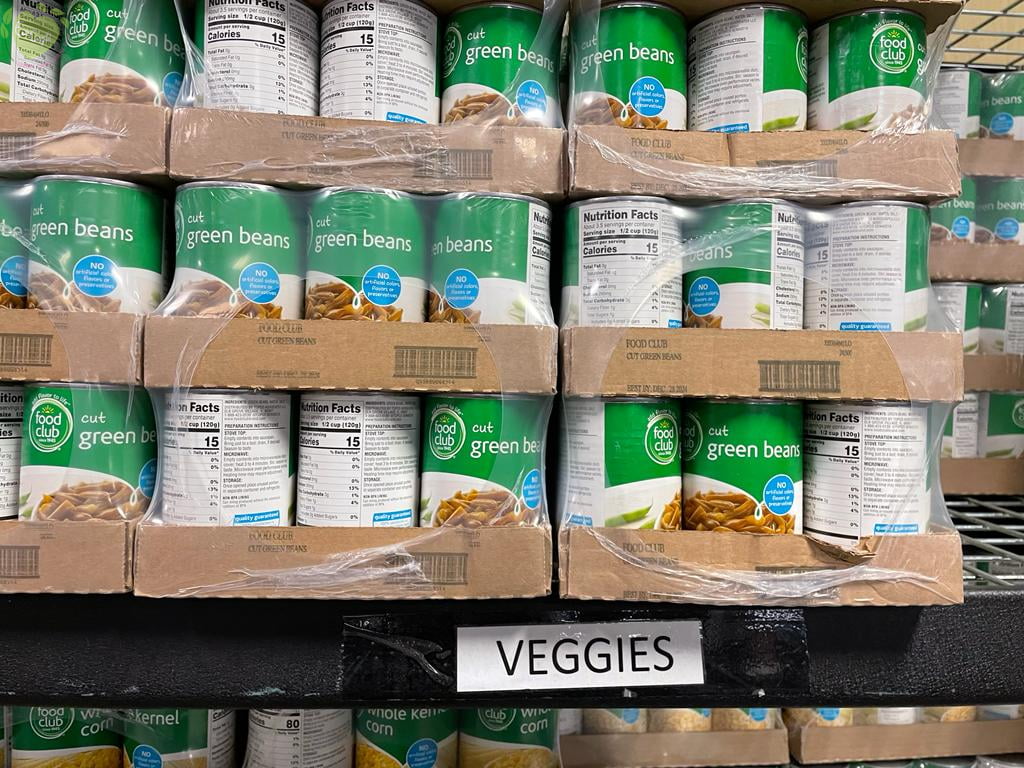
Food stocks donated to the Missoula Food Bank are neatly arranged like department store aisles. (Weeraya Vichayaprasertkul)
Refugees, Homeless, and Seniors
As we walked through the premises, I saw firsthand the people who relied on the food bank to meet their basic needs. The population served included refugees, senior citizens, and the homeless. The data we were shown highlighted the demographics of those who sought assistance, as well as the types of food available. It was heart-wrenching to learn that many of the senior citizens relied on their retirement stipends find themselves having not enough money to cover their living expenses, including food.
Unfortunately we weren’t allowed to take photos with the food bank visitors because the food bank wanted to protect the visitors’ identities and privacy, which I respect.
One of the major societal issues I noticed was the presence of a large refugee population. I learned that a significant portion of the people who come to the Food Bank are refugees who have recently settled in the area. With limited resources and a new environment to navigate, the Food Bank provides a much-needed source of support for these individuals.
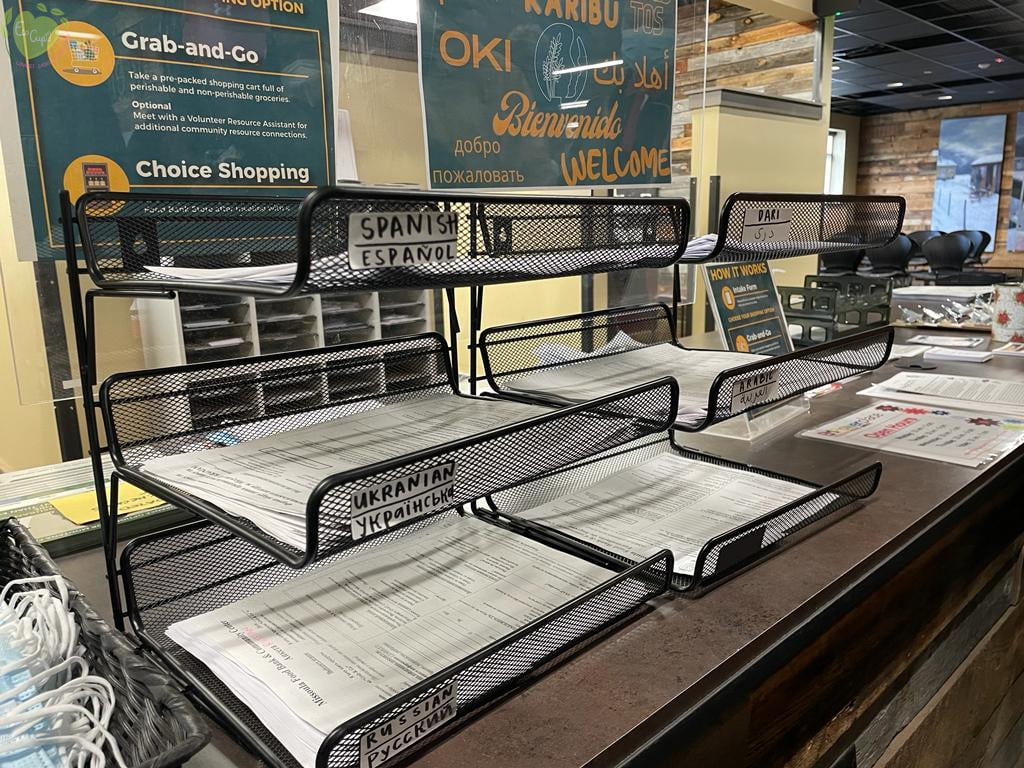
Registration forms were prepared in many languages to accommodate the global diversity of asylum seekers that arrived in Missoula and found themselves without food. (Weeraya Vichayaprasertkul)
Food Bank ‘Grocery Shopping’
The Food Bank in Missoula operates on a “customer choice” model, where people are allowed to select the food items that they need. This is a stark contrast to the limited supplies and restrictions that are often associated with food banks. In fact, there are no limits on how often people can come to the Food Bank, and there are no restrictions on staple foods and fresh foods. The only consideration is transportation limitations, as some people may struggle to carry large quantities of food back home.
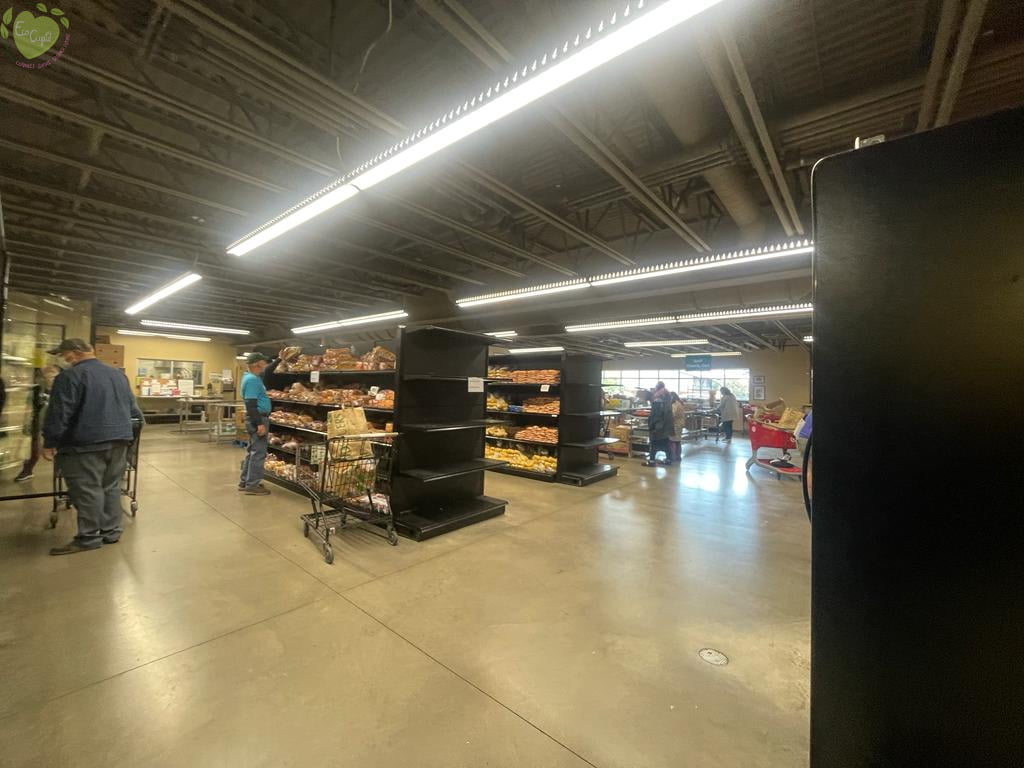
Visitors who enter the food bank can choose the food that they want and then leave. No questions asked. (Weeraya Vichayaprasertkul)
From Food Bank to Active Community Volunteers
In addition to government supplies and grocery rescue, the Food Bank also relies on donations and food drives from the community. This is where the 500 active volunteers come in, as they help to sort, stock, and deliver food supplies to those in need.
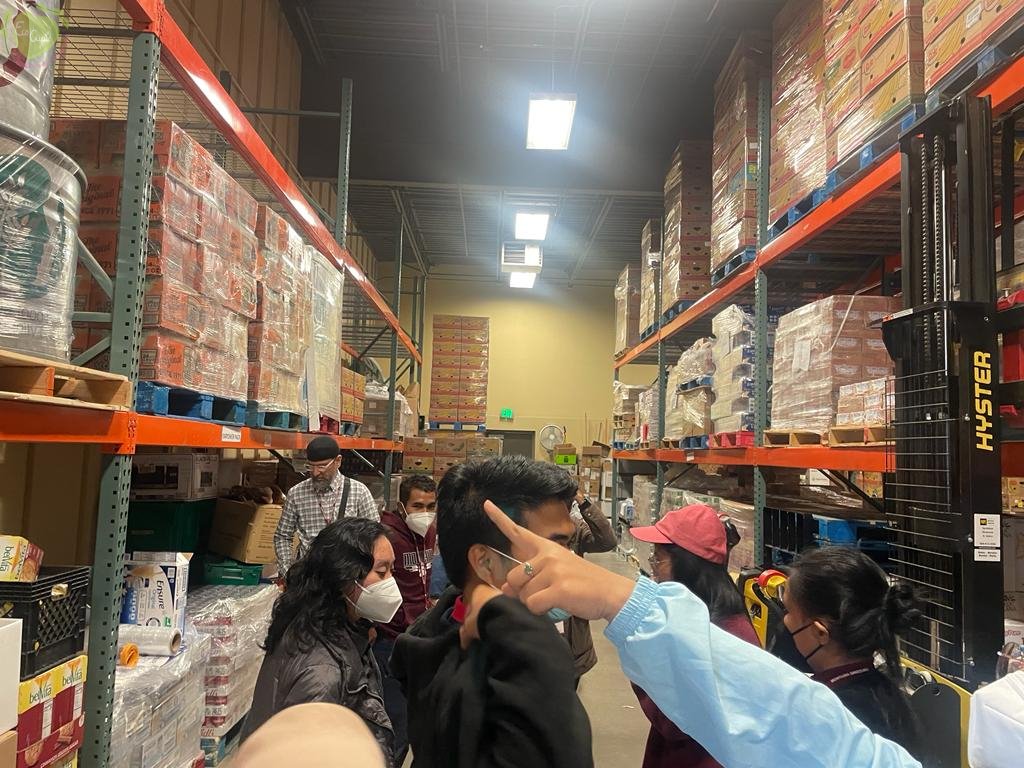
The YSEALI cohort queued up in an industrial line to pack weekend food boxes for primary school children in Missoula. Poor children have no food to eat when school canteens are closed during weekends. (Weeraya Vichayaprasertkul).
I was particularly moved by the Fresh Food Box program, which provides seniors with a monthly delivery of fresh produce at below market value. The Food Bank also delivers up to 400 boxes of fresh food per month, and the cost of the program is partially subsidised by tax reductions for food donations.
Food Security is Flawed
One of the advocates for the food bank spoke about the systemic flaw in the way society approached food security. She highlighted that it was not just about providing food to those in need, but also connecting them with other resources and helping them in other areas of their lives. It was eye-opening to learn that 25% of the community relied on the food bank and that the previous month before our visit, 2309 households had sought assistance, with 615 of them being new customers.
This really hit home for me, as it made me reflect on the situation back in Singapore. Although we have a more robust social security system in place, the cost of living has also been on the rise. I wondered if there were similar struggles that senior citizens in Singapore face, and if there are sufficient resources in place to support them.
As I walked through the food bank, I couldn’t help but think about the excess mentality that we often have in our society. We waste so much food, while there are others who struggle to get by on a daily basis. This experience has made me realise the importance of reducing our food wastage and giving back to the community.
My visit to the food bank in Missoula, Montana was an eye-opening experience. It shed light on the pressing issue of food insecurity in the US, and how food banks play a crucial role in providing assistance to those in need. This visit also made me reflect on the situation of food security back in Singapore, where despite having a strong economy, there are still individuals and families who struggle to put food on the table.
I urge readers to take action and reduce their food wastage, and if possible, to donate to their local food bank or even volunteer there. By doing so, we can help make a difference in the lives of those who are in need. Also, I encourage readers to subscribe to the EcoCupid articles and learn about other efforts to promote sustainability and protect our planet. Together, we can work towards a more sustainable future and a world where everyone has access to healthy and nutritious food.
(Edited by Bryan Yong)

Pranav Krishna
Pranav Krishna is a young entrepreneur and leader with a passion for sustainable business and the ASEAN community. He is the Co-Founder of the ASEAN Business Youth Association and a sophomore at Singapore Management University studying Business Management with a focus on Strategic Management and Sustainability.
